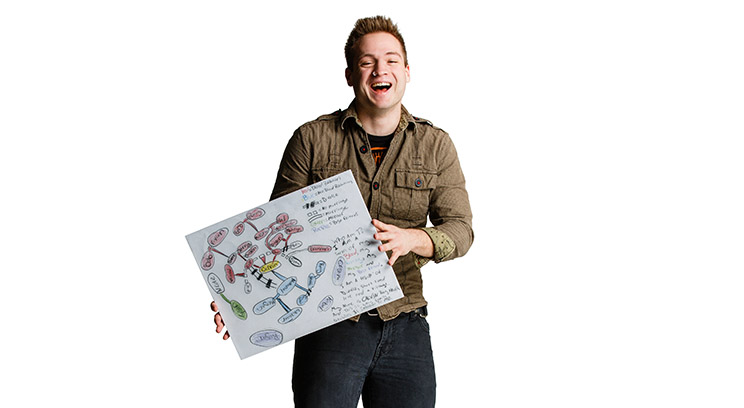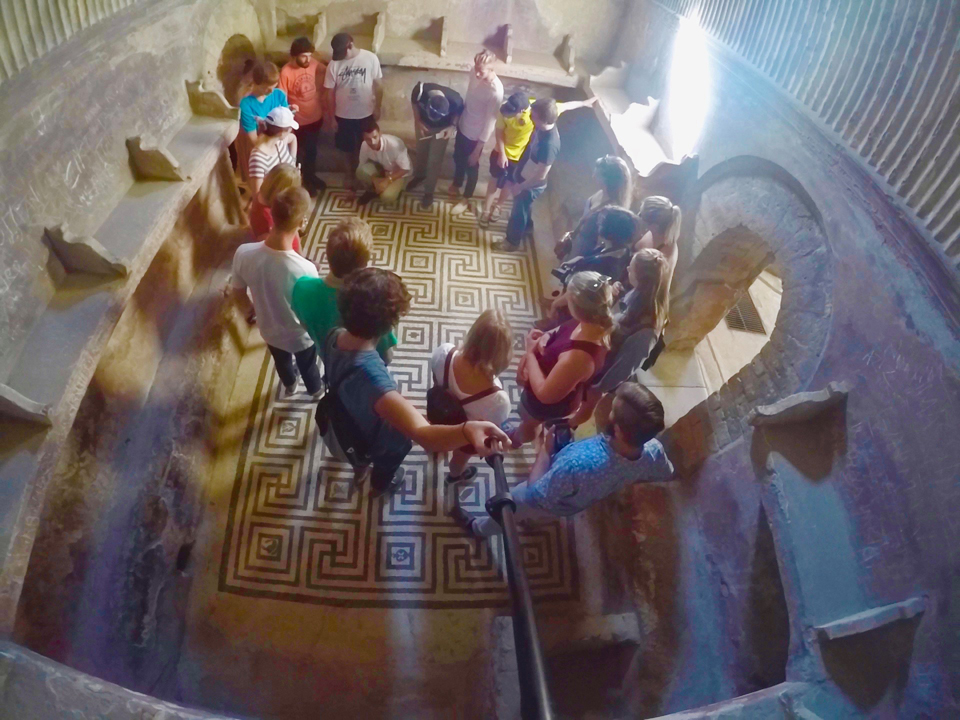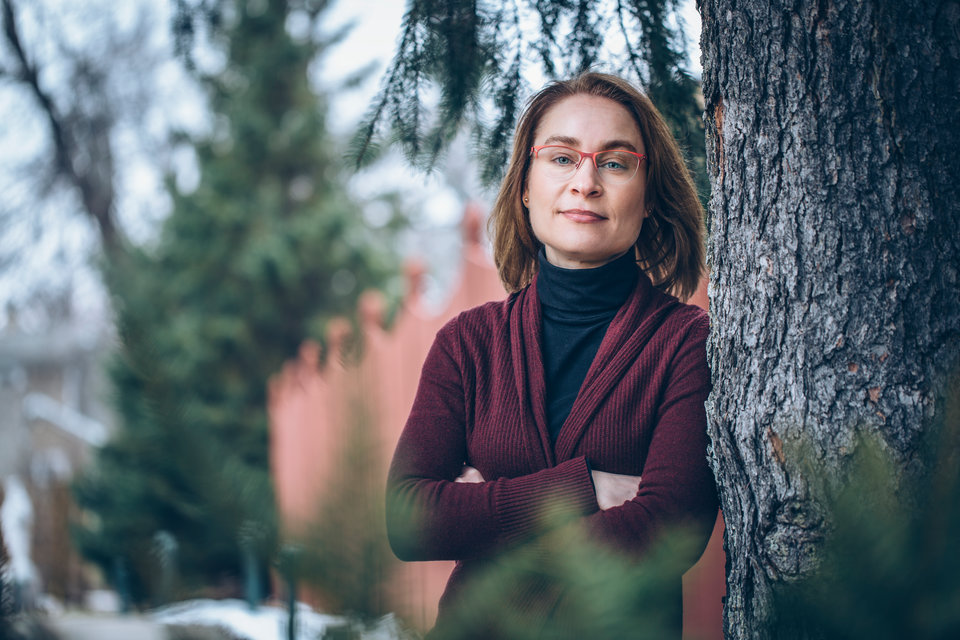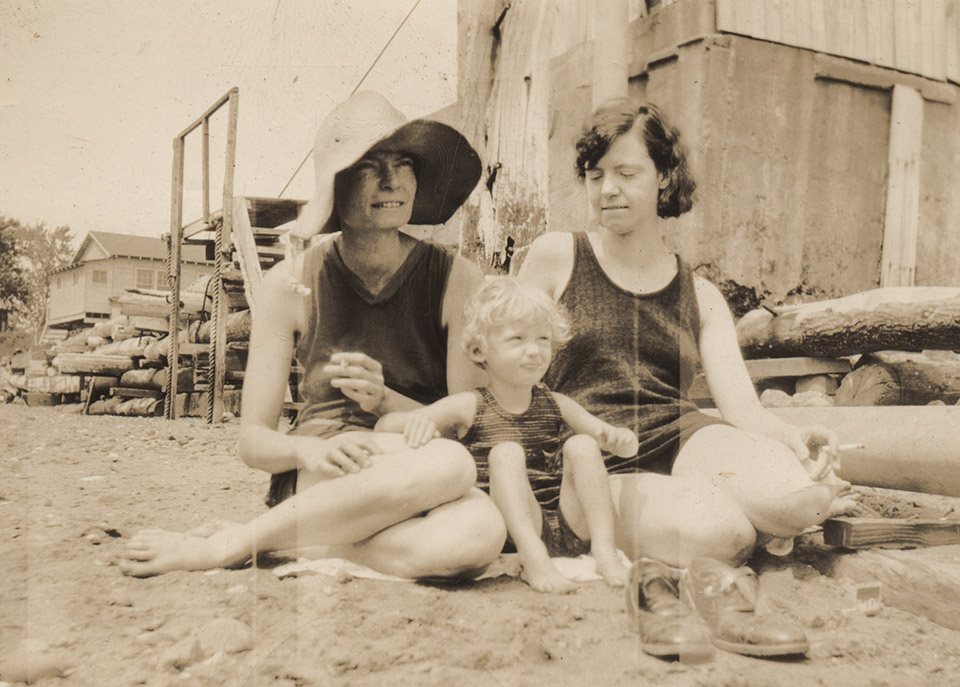On the first day of class in Family Communication, students encounter their first assignment: Visually define who counts as their own “family.” When they’re told they can supply a photo or make a stick-figure drawing of their families, many students perceive the task as “simple,” and most students even think “fun.” Soon, however, they encounter what communication and journalism professor Carol Bruess hopes the assignment will demonstrate: how not-so-simple-nor-straightforward the idea of “family” is.
Not by happenstance, in the first week of the Marriages and Families class taught by sociology professor Meg Wilkes Karraker, students are given a similar task, but with two amendments. First, Karraker says, “I now invite you to ADD any additional individuals to your family ... anyone who would have the rights and responsibilities of family.” Then she adds another twist: “I now invite you to DELETE anyone you don’t really consider ‘family.’”
The students’ resulting visual definitions of family reflect, in so many ways, the great diversity of family forms in the 21st century. By the end of week one of the semester, students in these two courses learn that no one family system is “normal.” And already at week one, they have begun a series of theoretical conversations about the relationships of self to others and family in relationship to the world, which helps them encounter family theory as they envision working in a helping profession with families someday and as they examine their own family experiences.

With her double major in family studies and psychology, Tammi Polingo '13 is well-prepared for her next degree: a Master of Social Work at the University of Chicago, a step toward her goal of becoming a licensed school counselor working with underserved high school students.
Bruess and Karraker have been teaching their two courses for more than 50 years combined, and they believe that examining representations of family over history and across cultures opens students’ minds.
Tammi Polingo was one of those students. “I remember sitting in Dr. Bruess’ Family Communication class when we first started talking about family systems theory, and I literally thought my mind was being blown. It was as if everything I ever thought to be completely absurd about my family started to make complete sense,” says Polingo, who graduated in December 2013 with a double major in family studies and psychology.
Like Polingo, a student graduating with a family studies major encounters current research, trends and theorizing about why and how families are so much more complex than once was thought, about how families are multilayered and culturally influenced co-creations, about how the principle of equifinality means there is no single path to the “happy” or “functional” family, about how all families experience conflict and are propelled by patterns of interaction, about how the “whole” of family is more than the sum of its parts, and about how family is, for most of us, the primary source of our identity as well as the predictor of our future social and educational prospects, and represents a set of relationships that influences us more than any other in life.
Studying these and a host of related topics makes family studies an exciting and intriguing major field students can now choose at St. Thomas.
Calvin Hauer made that choice before his 2013 graduation by creating an individualized major in family studies in 2009 before it was approved as a regular major. With his minors in sociology, psychology and women’s studies, he was well-prepared for his current position as a full-time master’s degree student at the University of St. Thomas in the Graduate School of Professional Psychology. He says, “I have one goal in life: to change as many peoples’ lives for the better as possible.” To do so, he’s earning a license in marriage and family therapy so that he can realize his ultimate dream: “to work with couples and individuals as they navigate the various pitfalls of sexuality, relationships and intimacy.”
Polingo has a similar goal of helping others, and she says she was attracted originally to family studies primarily because she knew she wanted to work with youth or young adults in an educational or therapeutic setting. She thought the family studies major would be a perfect complement to her psychology major, and she was right. Next fall she’s heading to the prestigious University of Chicago for a master’s program in social work. She hopes to become a licensed school counselor, and eventually a professor teaching about the profound influence of family on individual and collective lives.

A junior majoring in both family studies and psychology, Susie Wolter's dream is to become a child life specialist, a certification that will prepare her to work one-on-one with children and their families in hospital settings.
Growth: From small to something "major"
Until fall 2013, students like Polingo and Hauer had two options for studying family at St. Thomas. They could complete an approved minor in family studies or create an “individualized major” in family studies. But the five-course family studies minor wasn’t enough for many students. So many of them petitioned to create individualized majors that by 2012, family studies had more student majors than many departments with regular majors in the course catalog.
Finally, the University’s Committee on Studies requested the Family Studies Advisory Board propose a regular family studies major that wouldn’t need to be individualized for each student. And so that interdisciplinary group of faculty did. In spring 2013, family studies was approved as the newest major in the College of Arts and Sciences. By March 2014, 28 students had declared the major, making it one of the fastest-growing interdisciplinary programs in the college. This is in addition to the 30 current students who had created an individualized family studies major before it became an official option.
Students completing the new family studies major complete a total of nine courses, or 36 credits, and they select courses that stretch across traditional disciplinary boundaries, such as the Love, Sex and Friendship course offered through the Catholic Studies and Philosophy departments, the Psychology of Adulthood and Aging offered in the Psychology Department, Adolescence in Society offered by the Sociology and Criminal Justice Department and Christian Marriage offered by the Theology Department, among many others.
At the end of the major, every student also takes the family studies capstone seminar, during which the highlight for many is learning from current family professionals working in a variety of fields such as hospice care, marriage and family therapy, social work, research, family policy, family life education, child life, public health, adoption, ministry and others. The guest speakers share experiences on ethical issues working with and for families, and provide a peek into their daily work, explaining to students what types of advanced degrees are necessary to enter which types of careers. In addition, students in the seminar complete a research project in which they use one of the primary family theories to explore in-depth a topic encountered in their study of family the past four years. Many design a research study and collect data. Polingo, for example, completed her capstone project last year by studying family interactions in the digital age, asking specifically how families use Facebook as a ritual of connection with other family members.
Many family studies students double major in fields with a similar focus on human behavior. Popular double majors are social work, psychology, sociology, education, health and human performance, and communication and journalism. And the family studies faculty know students are wise to do so. Jolynn Gardner, professor in Health and Human Performance, explains: “A major in family studies can help prepare students for next steps in your life and career, and often that next step will need to be graduate school if a student wants to earn licensure or receive advanced certification to work in direct-care roles with families, youth or children. Students are smart to gain breadth and depth in multiple areas of study, giving them a competitive advantage and opening multiple doors in their future pursuits.”
Some students, like 2011 graduate Foua Yang, became so passionate about the topics they encounter in family studies and their double major, they know exactly what they need to do next, and that’s often to find a graduate program. Yang is getting her doctoral degree at the University of Minnesota. There, she is building a line of research on “the topics of divorce such as prevention, intervention and healthy relationships in the Hmong community.” Yang is passionate about her graduate studies, saying, “There is a vast need to educate Hmong adults about healthy relationships and divorce and to develop interventions to assist couples that struggle in their marriages. I plan to fulfill this great gap in our community, culture and in the field of family social science.” Yang’s pursuit of a Ph.D. was made easier when she was awarded a $25,000 per year, four-year fellowship to cover her costs.

Emily Kindelspire is a senior double majoring in justice and peace studies, and family studies, with a minor in women's studies. Her goals include becoming a midwife or doula and eventually creating a sustainable living community in a rural area of the Twin Cities, a place that would also serve as a safe haven for children and young adults.
An Evolving Mission: Family at the Core
While family studies seems exciting and new because of the major’s approval and students’ strong interest, it is not a new program by any means. Family studies as an interdisciplinary minor was established almost 18 years ago when a group of seven faculty, each passionate about studying family from the perspectives of her or his own disciplinary lens, came together in 1996 to form the first “Interdisciplinary Family Studies Committee.” Two of those founding members – Karraker, the program’s former director, and psychology professor John Buri – remain members of the Family Studies Advisory Board. Buri reflects on the history and current state of Family Studies: “I think the most impressive thing about the program has been its ‘grass roots’ beginning and growth. It isn’t like someone threw a lot of money and personnel resources into the idea and that’s what made it grow. It’s really been that family studies has met a need with a valued product, and therefore it has grown and revealed its worth – to our students, to the university and to the broader community.”
The founding committee believed, as do current board members, that family studies is a perfect fit with the St. Thomas mission:
The Family Studies program has a mission of embracing a multidisciplinary curriculum toward educating students about families and the importance of families for building healthy persons, relationships, communities and societies. To this end, and by fostering critical reflection on diverse families and an interdisciplinary approach to understanding, studying and working with families, Family Studies provides a foundation for moral leadership, social action and professional work toward advancing the common good of all families, their members, and that of the greater community and world.
When family studies students are asked to describe their experience in relationship to the program’s mission, they frequently cite passionate professors who exhibit a contagious energy about making the world a better place by supporting diverse, strong and resilient families; further, they almost always speak to the support received from family studies faculty and advisers, something that further ignites a passion to serve others in the greater community and world. Senior Sarah Pappas, who hopes to become a marriage and family therapist after attending graduate school, specializing in aging adulthood and grief therapy, says, “I can honestly say that all of the family studies professors I’ve had are not only role models, but mentors and friends.”
Despite students’ satisfaction with the major, the faculty have plans for continuing to improve and expand the program. Now that the major officially exists in the course catalog, the faculty intend to bookend the major with a family studies survey course. The new course, Introduction to Family Studies, will be launched next fall and will provide all students an early opportunity to examine firsthand how studying family from an interdisciplinary perspective can be deeply enriching and very challenging, yet always incredibly interesting.
Read more from CAS Spotlight.





